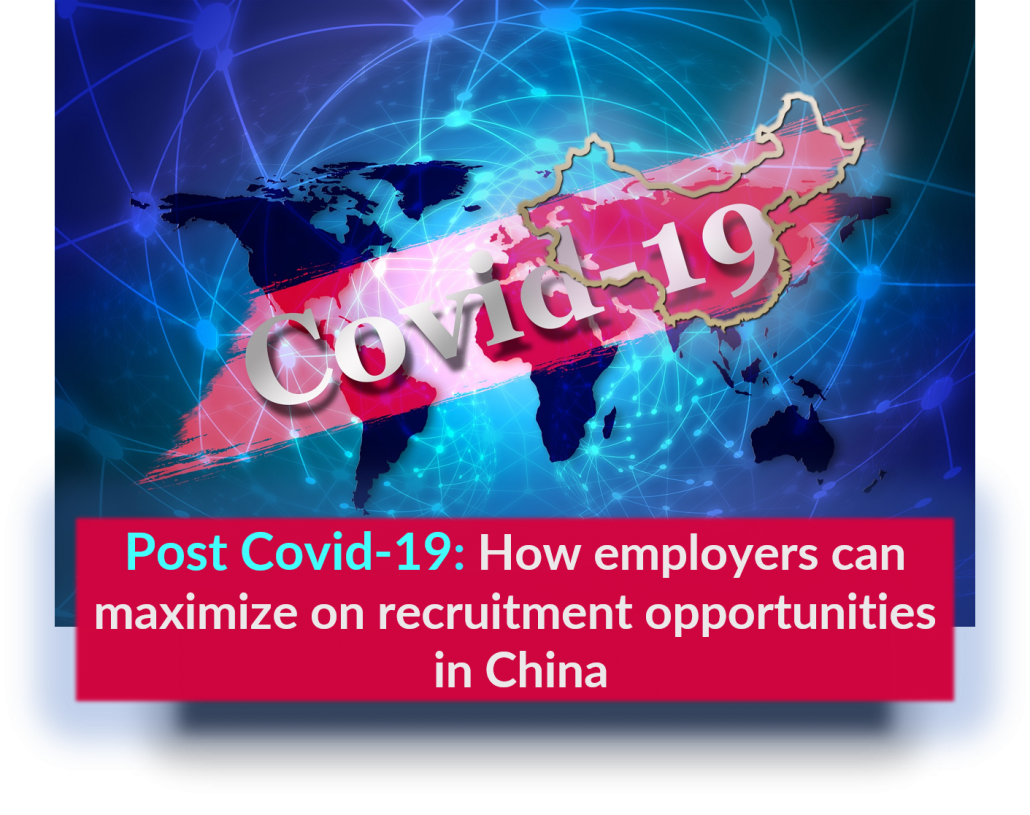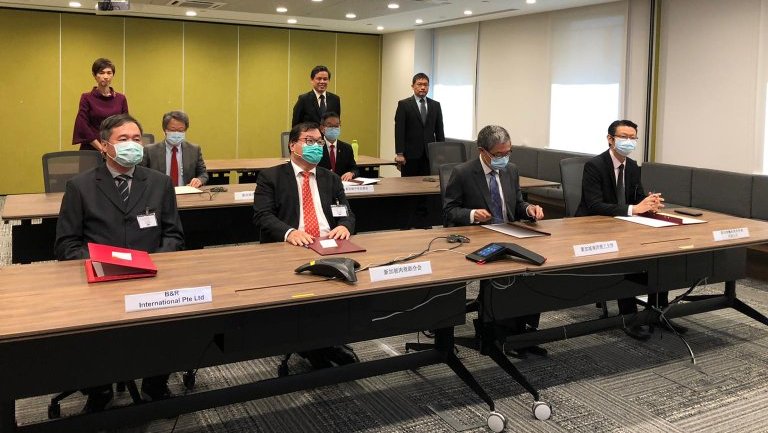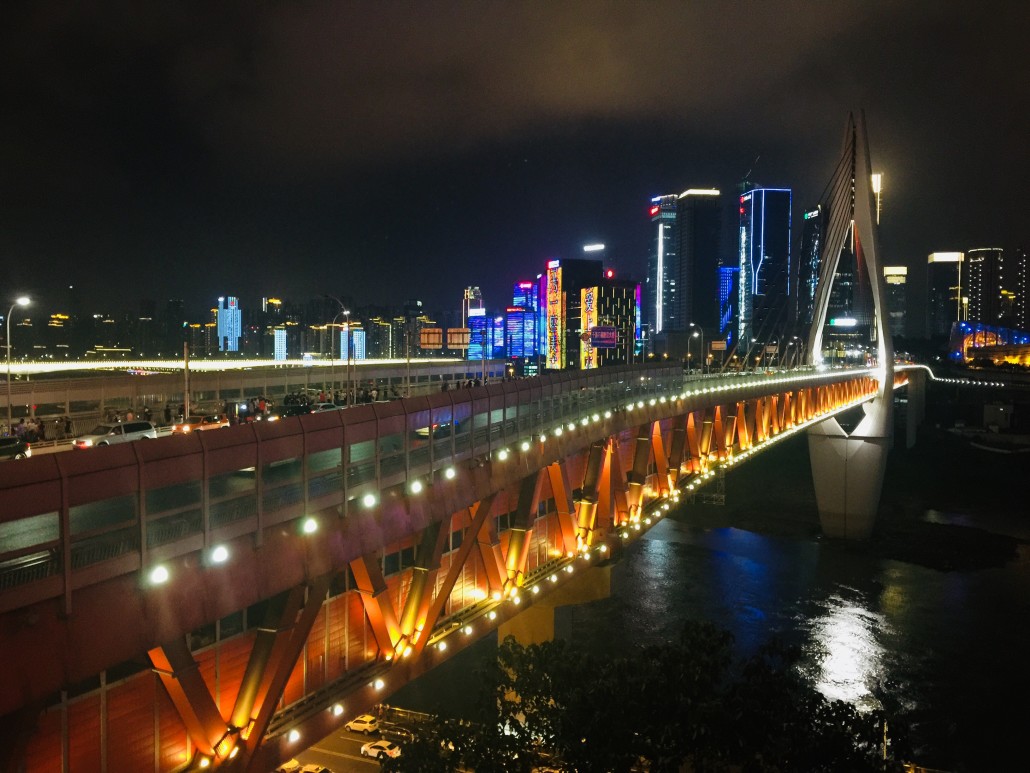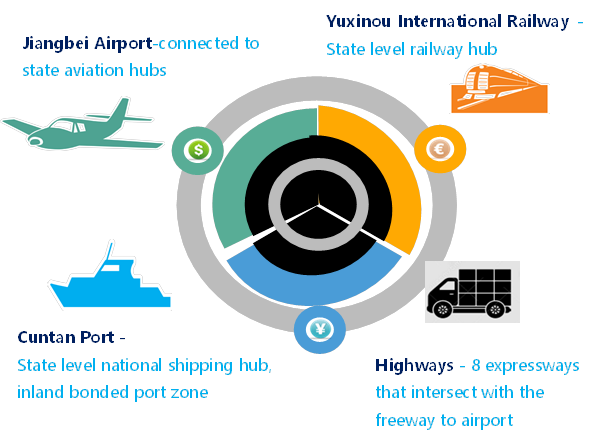Translated by Lingyun Gao (Professor of Law, Fudan University)
Chapter I General Provisions
Article 1
This Regulations is made under the Foreign Investment Law of the People’s Republic of China (hereinafter referred to as the “Foreign Investment Law”).
Article 2
The State encourages and promotes foreign investment, protects the lawful rights and interests of foreign investors, regulates foreign investment administration, continues to optimize foreign investment environment, and advances a higher-level [market] opening.
Article 3
The “other investors” mentioned in items 1 and 3, paragraph 2 of article 2 of the Foreign investment Law include the natural persons of Chinese nationality.
Article 4
The negative list for foreign investment entry (hereinafter referred to as “the negative list”) is formulated by the department under the State Council in charge of investment, jointly with the department under the State Council in charge of commerce and other relevant departments, and submitted to and issued by the State Council, or issued by the departments there under in charge of investment and commerce after being approved by the State Council.
The State adjusts the negative list in a timely manner to satisfy the needs for furthering the opening up [policy] and economic and social development. When adjusting the negative list, the procedure provided in the preceding paragraph shall apply.
Article 5
The departments under the State Council in charge of commerce and investment and other relevant departments there under work closely, co-cooperatively, and jointly to accomplish the promotion, protection, and administration of foreign investment according to division of their responsibilities。
The local people’s governments above the county level shall strengthen their leadership in promoting, protecting, and administering foreign investment, support and urge the relevant departments to develop, in accordance with law, administrative regulations, and the division of the responsibilities, the promotion, protection, and administration of foreign investment,and timely coordinate and resolve the major issues arising therefrom.
Chapter II Promotion of Investment
Article 6
The government and its relevant departments shall equally treat foreign-invested enterprises and domestic enterprises in funds arrangement, land supply, tax abatement or exemption, qualification licensing, standard setting, project application, or human resource policies.
The policies adopted by the government and its relevant departments supporting the development of enterprises shall be publicized in accordance with law. Where the implementation of a policy involves a matter that the enterprises need to apply for, the government and its relevant departments shall publicize the condition, procedure, and time limit for such application,and treat the foreign-invested enterprises and domestic enterprises equally when reviewing their applications.
Article 7
When issuing an administrative regulation, a departmental rule, or a regulatory document concerning foreign investment, or when the government and its relevant departments are drafting a law or a local regulation concerning foreign investment, the drafters shall, as applicable, seek comments from foreign-invested enterprises, the relevant chambers of commerce, and the relevant associations through various forms including inviting written comments and convening seminars, demonstrating meetings, or public hearings. For those comments and suggestions shared by most people or concerning an issue involving the major rights and obligations of foreign-invested enterprises, feedback on the adoption of the comments or suggestions shall be given in a proper manner.
The regulatory documents concerning foreign investment shall, in accordance with law, be timely publicized, and those not publicized shall not be cited as the basis for administration. A regulatory document closely related to the production and operation of foreign-invested enterprises shall, based on the actual situation, reasonably determine a time frame between its issuing and its implementation.
Article 8
The people’s governments at various levels shall, in accordance with the principle of government-domination and multiparty-participation, establish and improve a system serving foreign investment, and constantly improve the ability and standard of such service.
Article 9
The government and its various departments shall, through its official website or a nationally unified online government-service platform,specify the laws, regulations, departmental rules, regulatory documents, policy measures, and information on investment projects concerning foreign investment,and emphasize publicity and explanation thereof through various methods, to provide consultation, guidance, and other services for foreign investors and foreign-invested enterprises.
Article 10
The “special economic zone” mentioned in article 13 of the Foreign Investment Law refers to a specific area approved and established by the State in which more liberal policy measures of opening for foreign investment are adopted.
The pilot policy measures on foreign investment which are adopted by the State in certain regions and are proved to be feasible, are to be adopted, as applicable, in other regions or nationwide.
Based on the national economy and the needs for social development, the State makes a catalogue of the sectors that foreign investment is encouraged to invest in specific industries, sectors, and regions listed therein. The catalogue for the sectors that foreign investment is encouraged is drafted by the department under the State Council in charge of investment jointly with the department under the State Council in charge of commerce and other relevant departments, and issued thereby after being approved by the State Council.
Article 12
A foreign investor or foreign-invested enterprise may, in accordance with law, administrative regulations, or the rules made by the State Council, enjoy preferential treatments in areas such as finance, tax, financing, and land usage.
A foreign investor who applies income accrued from its investment within China to expand its investment in China shall enjoy, in accordance with law, the corresponding preferential treatment.
Article 13
Foreign-invested enterprises shall equally participate, in accordance with law, in setting and revising the State standard, industry standard, local standard, and group standard with domestic enterprises. Foreign-invested enterprises may, based on needs, make industry standards on its own initiative or jointly with other enterprises.
A foreign-invested enterprise may propose to the administrative department in charge of standard-setting, and may propose comments and suggestions during the periods of approval of the standard-setting project, drafting of the standard, technology examination, and the feedback and evaluation of the implementation of the standard, and engage in standard drafting, technology examination,and other relevant works as well as the translation of the standard into foreign languages.
The department in charge of standard-setting and the other relevant administrative departments shall establish and improve a relevant working system to improve the transparency of and promote the complete publicity of the information on standard-setting and revision.
Article 14
The mandatory standards made by the State shall equally apply to foreign-invested enterprises and domestic enterprises, and [the relevant departments of the government] shall not impose on the foreign-invested enterprises a standard for the technology higher than the mandatory standard.
Article 15
The government and its relevant departments shall not obstruct or restrict a foreign-invested enterprise from freely entering into the government procurement market in the local area or in a specific industry.
The purchaser of government procurement or its agency shall not adopt differentiated or discriminated treatment on foreign-invested enterprises when publicizing procurement information, determining and reviewing the qualification of suppliers, and determining the standard for review thereof. Neither shall they restrict suppliers through imposing unreasonable conditions, such as restricting the suppliers’ ownership type, organizational form, equity structure, the nationality of the investors, or the brand of product or service, nor differentiate the product manufactured or service provided within China by a foreign-invested enterprise from those manufactured or provided by a domestic enterprise.
Article 16
A foreign-invested enterprise may, in accordance with the Government Procurement Law of the People’s Republic of China (hereinafter referred to as the Government Procurement Law) and its implementation regulations, inquire into or question the purchaser or its agency about a government procurement matter and lodge complaint with the department supervising government procurement. The purchaser, its agency, or the department supervising government procurement shall provide a response or make a decision within the stated period of time.
Article 17
The department supervising government procurement and the other relevant departments shall strengthen the supervision of and examination on government procurement, and correct and punish in accordance with law the activities that treat foreign-invested enterprises differently or indiscriminately in violation of law or regulations.
Article 18
A foreign-invested enterprise may, in accordance with law, obtain financing within or outside China through public offering of securities such as stocks or corporate bonds, issuing other financing securities through either public issuing or private placement, and borrowing foreign debts.
Article 19
The local people’s governments above the county level may, in accordance with law, administrative regulations, and local regulations and within their delegated authority, take policy measures to promote and facilitate foreign investment, such as abatement of fees, guarantee of land-use quota, and provision of public services.
The policy measures purported to promote and facilitate foreign investment taken by the local people’s governments above the county level shall be oriented to promote high quality development, shall be beneficial for improving economic, social, and ecological benefits, and for constantly optimizing the foreign investment environment.
Article 20
The relevant departments in charge shall make and publicize a guideline for foreign investment to serve and facilitate foreign investors and foreign-invested enterprises. The guideline for foreign investment shall include introduction to foreign investment environment, procedure guide lines for foreign investment, information on investment projects, and the relevant data, which shall be timely updated.
Chapter III Protection of Investment
Article 21
The State does not expropriate foreign investors’ investments.
Under special circumstances where the State expropriates the investment of foreign investors for public interests, it shall be proceeded in accordance with the legal procedure and in a non-discriminatory manner, and compensation shall be made timely based on the market value of the expropriated investment .
Article 22
The capital contribution made by foreign investors within China, and the profits, capital gains, proceeds of asset disposal, intellectual property rights’ licensing fee, indemnity or compensation legally obtained, or proceeds received upon liquidation by foreign investors within China, may be freely remitted inbound and outbound in RMB yuan or a foreign currency, and no entity or individual may impose restrictions on the currency, amount, or frequency of inbound or outbound remittance in violation of law.
The salary and other lawful income of foreign employees or employees from Hong Kong, Macau, and Taiwan of a foreign-invested enterprise may, in accordance with law, be freely remitted outbound.
Article 23
The State reinforces punishment on infringement of intellectual property rights, constantly strengthens enforcement of protection of intellectual property rights, promotes the establishment of a fast-track co-ordination protection system for intellectual property rights, improves a diversified system for resolving disputes on intellectual property rights, and equally protects the intellectual property rights of foreign investors and foreign-invested enterprises.
Where a standard-setting involves a patent owned by a foreign investor or foreign-invested enterprise, the relevant provisions on the standard involving the patent shall be applied.
Article 24
An administrative agency (including an organization authorized bylaw or administrative regulations to administer public matters, similarly hereinafter) and its staff shall not compel directly or in a disguised form a foreign investor or a foreign-invested enterprise to transfer technology through implementing administrative licensing, inspection, penalty, coercion,or other administrative methods.
Article 25
Where it is necessary for an administrative agency that is performing its duties to request a foreign investor or foreign-invested enterprise to provide materials or information involving a trade secret, [the materials or information required to be provided] shall be constrained within the scope necessary for the administrative agency to perform its duty, and the access to the materials or information should be strictly controlled and people irrelevant to performing such duty shall not access to the relevant materials or information.
The administrative agencies shall establish and improve an internal administration system and adopt effective measures to protect the trade secrets owned by the foreign investors or foreign-invested enterprises which are obtained during performing of their duties; where the information is required by law to be shared with other administrative agencies, the trade secrets contained in the information shall receive confidential treatment to avoid leakage.
Article 26
The regulatory documents made by the government and its relevant departments concerning foreign investment shall go through compliance review in accordance with the regulations made by the State Council.
Where a foreign investor or foreign-invested enterprise believes that a regulatory document made by a department under the State Council or made by a local government and its departments based on which an administrative activity was conducted is not in compliance with law, it may, in accordance with law, request for a compliance review of such regulatory document when it applies for administrative review of the administrative activity or initiates an administrative litigation.
Article 27
The “commitment on policies” mentioned in article 25 of the Foreign Investment Law refers to the written commitments made by the local people’s governments at various levels and their relevant departments within their legally delegated authority concerning the supportive policies, preferential treatment, and facilitation conditions that apply to foreign investors and foreign-invested enterprises who invest in the local area. The content of such commitments shall comply with law and regulations.
Article 28
The local people’s governments at various levels and their relevant departments shall perform their commitments on policies made in accordance with law to foreign investors and foreign-invested enterprises, and the various contracts entered into therewith in accordance with law, and shall not breach or cancel such a contract on the ground that the administrative division is readjusted, the government officials are re-elected, the agencies or their functions are adjusted, or the relevant persons in charge are changed, etc. Where the commitment on policies or contract needs to be changed as required for social public interests, it shall be done in accordance with the legal authority and legal procedure, and the damage thus suffered by the a foreign investor or foreign-invested enterprise shall be fairly and reasonably compensated in a timely manner.
Article 29
The local peoples’ governments above the county level and the irrelevant departments shall, according to the principles of publicity,transparency, efficiency, and facilitation, establish and improve a mechanism for foreign-invested enterprises to lodge complaints, in order to timely resolve the issues presented by foreign-invested enterprises or their investors, and to coordinate and improve the relevant policy measures.
The department under the State Council in charge of commerce establishes, with the other relevant departments under the State Council, an inter-ministry joint-conference system concerning the complaints filed by foreign-invested enterprises to coordinate and promote the work concerning complaint made by foreign-invested enterprises to the central government, and to guide and supervise the work concerning complaint made by foreign-invested enterprises to the local government. The local people’s governments above the county level shall designate a department or agency to accept complaints filed by the foreign-invested enterprises or their investors within the local area.
The department under the State Council in charge of commerce and the department or agency designated by the local people’s government above the county level shall improve the rules for the complaining mechanism and the means for lodging complaints, and clarify the time limit for resolving the complaints. The rules for the complaining mechanism, the means for lodging complaints, and the time limit for resolving the complaints shall be publicized.
Article 30
Where a foreign-invested enterprise or its investor believes that an administrative act conducted by an administrative agency and its staff infringes upon its lawful rights and interests, and applies for co ordination and resolution through the complaining mechanism for foreign-invested enterprises, the relevant department may inquire into the concerned administrative agency and its staff about the specific situation while conducting coordination, and the latter shall be cooperative. The petitioner shall be notified in writing about the result of coordination.
Where a foreign-invested enterprise or its investor petitions to resolve a problem through coordination according to the provisions provided in the preceding paragraph, its ability to apply for administrative review or initiate an administrative litigation is not affected.
Article 31
No entity or individual shall suppress or retaliate the foreign-invested enterprise or its investor who lodges a complaint with or petition to the complaining mechanism for foreign-invested enterprises to resolve a problem.
A foreign-invested enterprise or its investor may complain about a problem to the government and its relevant departments through other lawful means, in addition to filing with the complaining mechanism for foreign-invested enterprises.
Article 32
A foreign-invested enterprise may establish a chamber of commerce or an association in accordance with law. Unless otherwise provided by law or administrative regulations, a foreign-invested enterprise may decide autonomously to join in or withdraw from a social organization such as a chamber of commerce or an association, and no entity or individual shall intervene.
The chamber of commerce or association shall, in accordance with law, administrative regulations, or its articles of association, strengthen the self-discipline of the industry, timely report the request of the industry,provide to its members services such as information consultation, publicity and training, market expansion, economic and trade exchanges, protection of rights and interests, and dispute resolution.
The States supports the chambers of commerce or associations to conduct relevant activities in accordance with law, administrative regulations,and its articles of association.
Chapter IV Administration of Investment
Article 33
A foreign investor shall not invest in a prohibited sector on the negative list. For a restricted sector on the negative list, a foreign investor shall comply with the special administrative measures required for entry of the restricted sector, such as the requirement for equity shareholding and qualifications for its senior management officers.
Article 34
Where a relevant department is performing its duties, it shall not grant permit, register the enterprise,or allow the relevant matters if the foreign investor proposes to invest in a sector listed in the negative list but the corresponding requirements are not satisfied; where an application concerns approval of an investment project involving fixed assets, the approval shall not be issued.
The relevant department shall strengthen supervision and examination of the enforcement of the negative list; if it is discovered that a foreign investor is investing in a prohibited sector on the negative list, or if the investment activity of a foreign investor is in violation of the special administrative measures required for investing in a restricted sector on the negative list, the provisions provided in article 36 of the Foreign Investment Law shall be applied.
Article 35
Where a foreign investor invests in an industry or sector which requires obtainment of a license in accordance with law, unless otherwise provided by law or administrative regulations, the relevant department responsible for implementing the license shall, according to the same condition and procedure applicable to domestic enterprises, review the application of the foreign investor for the license, and shall not impose discriminatory requirements on the foreign investor concerning the conditions for granting the license, application materials, review, time list for review, etc.
The relevant department in charge of implementing the licensing shall, through various means, optimize the service for the review and improve the efficiency of approval. The licensing matters that satisfy the relevant conditions and requirements may be handled by means of making commitment upon receipt of notification in accordance with the relevant rules.
Article 36
Where the foreign investment needs to be approved to filed for the record, it shall be handled in accordance with the relevant regulations of the State.
Article 37
The registration of a foreign-invested enterprise shall be filed with the department under the State Council in charge of market supervision and administration or the duly delegated department of a local government in charge of market supervision and administration. The department under the State Council in charge of market supervision and administration shall publicize the list of duly delegated departments of market supervision and administration.
The registered capital of a foreign-invested enterprise may be represented by RMB or by a freely-convertible currency.
Article 38
A foreign investor or foreign-invested enterprise shall, through the enterprise registration system and the enterprise credit information disclosure system, report investment information to the competent departments in charge of commerce. The departments under the State Council in charge of commerce and market supervision and administration shall integrate and coordinate the relevant systems, and provide guidance for foreign investors or the foreign-invested enterprises to report their investment information.
Article 39
The content, coverage, frequency, and specific procedure of foreign investment information report are determined and announced by the department under the State Council in charge of commerce jointly with the department under the State Council in charge of market supervision and administration and the other relevant departments, based on the principles of actual necessity, high efficiency, and facilitation. The department in charge of commerce and the other relevant departments shall enhance information sharing, and if the investment information is available through the inter-departmental information sharing system, the foreign investor or foreign-invested enterprise shall not be required to submit a duplicate report.
The investment information reported by foreign investors or foreign-invested enterprises shall be true, accurate, and complete.
Article 40
The State establishes a security review system for foreign investment to conduct security review for those foreign investments that affect or may affect the State security.
Chapter V Legal Liability
Article 41
The government, its relevant departments, and the staff thereof,shall assume legal liability in accordance with law and administrative regulations if they have conducted any of the following activities:
(1) making or implementing a policy which does not equally treat foreign-invested enterprises and domestic enterprises in compliance with law;
(2) illegally restricting foreign-invested enterprises from equally participating in the standard setting and review, or imposing a technology requirement on foreign-invested enterprises which is higher than the mandatory standard;
(3) illegally restricting foreign investors from remitting funds inbound or outbound;
(4) failure to honor a commitment on policies made in accordance with law to a foreign investor or foreign-invested enterprise or failure to perform the various contracts legally entered into therewith, making a commitment on policies in exceeding its duly delegated authority, or making a commitment on policies the content of which does not comply with law or administrative regulations.
Article 42
The purchaser in government procurement or its agency, who exercises differentiated or discriminatory treatment on foreign-invested enterprises through imposing unreasonable conditions, shall assume legal liability according to the Government Procurement Law and its implementation regulations; where the bidding result is or may be affected, the Government Procurement Law and its implementation regulations shall apply.
Where the department supervising the administering government procurement has not made a timely decision on the complaint filed by a foreign-invested enterprise, the directly responsible person in charge and other responsible staff shall receive sanctions in accordance with law.
Article 43
Where an administrative agency and its staff compels directly or in a disguised form a foreign investor or foreign-invested enterprise to transfer its technology, the directly responsible person in charge and other responsible staff shall receive sanctions in accordance with law.
Chapter VI Supplementary Provisions
Article 44
A foreign-invested enterprise established before this Law takes effect under the Law of the People’s Republic of China on China-Foreign Equity Joint Ventures, the Law of the People’s Republic of China on Wholly Foreign-Owned Enterprises, or the Law of the People’s Republic of China on China-Foreign Contractual Joint Ventures may elect to transform its business form and organization structure, etc. according to the Corporation Law of the People’s Republic of China and the Law of the People’s Republic of China on Partnership Enterprises and file for registration of modification of its business form within five years since this Law takes effect; it may also maintain its original business form or organization structures.
Since January 2025, for those existing foreign-invested enterprises that have not transformed their business form or organization structure in accordance with law and have not filed for modification registration, the department in charge of market supervision and administration shall not accept their application for other registration matters, and shall publicize the relevant situation thereof.
Article 45
The specific rules on registration of modification of the business form or organization structure of the existing foreign-invested enterprises shall be made and announced by the department under the State Council in charge of market supervision and administration. The department under the State Council in charge of market supervision and administration shall reinforce its guidance on modification registration, and the departments of market supervision and administration in charge of modification registration shall,through various means of optimizing their service, facilitate the enterprises for their modification registration.
Article 46
After the existing foreign-invested enterprises have transformed their business form and organization structure, the conditions on transferring shares of stock or shares of equity and the means of distribution of income and the residual assets agreed upon by the original cooperative parties may continue to be effective.
Article 47
The relevant provisions provided in the Foreign Investment Law and this Regulations apply to the foreign-invested enterprises that re-invest within China.
Article 48
For the investors from the Hong Kong Special Administrative Region and the Macau Special Administrative Region investing in the mainland, the Foreign Investment Law and this Regulations shall be applied by reference;except that the law, administrative regulations, or the rules made by the State Council that provide otherwise shall be applied.
For the investors from Taiwan investing in the mainland, the Law of the People’s Republic of China on Protection of Investment Made by Taiwan Compatriots and its Implementation Regulations shall apply; for the matters not mentioned in the aforementioned Law or Regulations, the Foreign Investment Law and this Regulations shall be applied by reference.
For the Chinese citizens who have settled abroad investing within China, the Foreign Investment Law and this Regulations shall be applied by reference, except that the law, administrative regulations, or the rules made by the State Council that provide otherwise shall be applied.
Article 49
This Regulations takes effect since January 1, 2020. The Regulations on Implementing the Law of the People’s Republic of China on China-Foreign Equity Joint Ventures, the Provisional Regulations on the Term of China-Foreign Equity Joint Ventures, the Implementation Rules on the Law of the People’s Republic of China on China-Foreign Equity Joint Ventures, the Implementation Rules on the Law of the People’s Republic of China on Wholly Foreign-Owned Enterprises, and the Implementation Rules on the Law of the People’s Republic of China on China-Foreign Contractual Joint Ventures shall be repealed at the same time.
If there is any discrepancy between the rules concerning foreign investment made before January 1, 2020 and the Foreign Investment Law or this Regulations, the Foreign Investment Law and this Regulations shall prevail.
 Change is the only constant in China. This is rule number one when thinking to enter or do business with this market. But in the year 2020 change got renamed into COVID 19. No matter how big or small you are, you could not but surrender to the traumatic experience of doing business in the world of the pandemic. Markets shivered, stock exchanges stood in shock and the job market stared in fear. It was time for another change.
Change is the only constant in China. This is rule number one when thinking to enter or do business with this market. But in the year 2020 change got renamed into COVID 19. No matter how big or small you are, you could not but surrender to the traumatic experience of doing business in the world of the pandemic. Markets shivered, stock exchanges stood in shock and the job market stared in fear. It was time for another change.

























